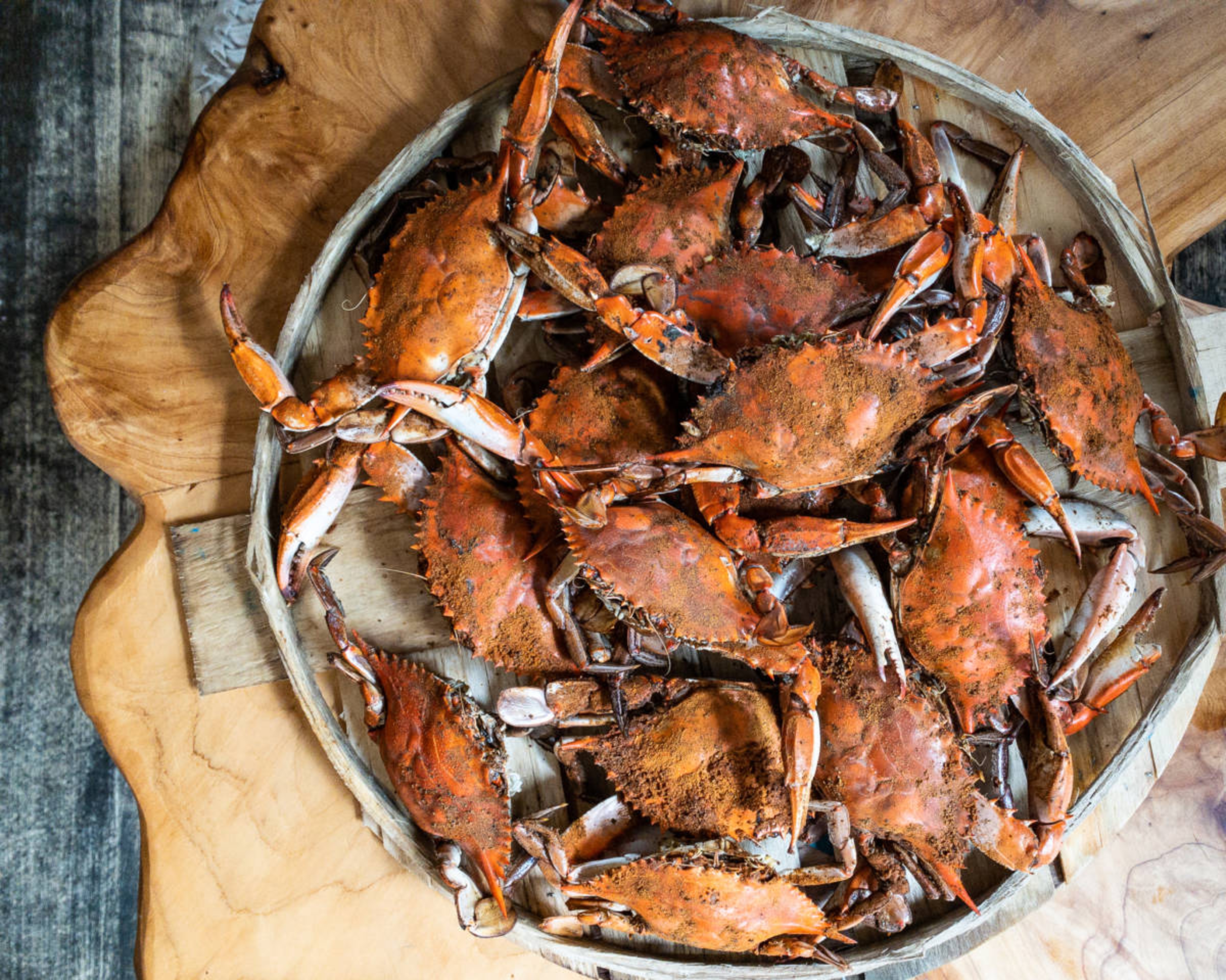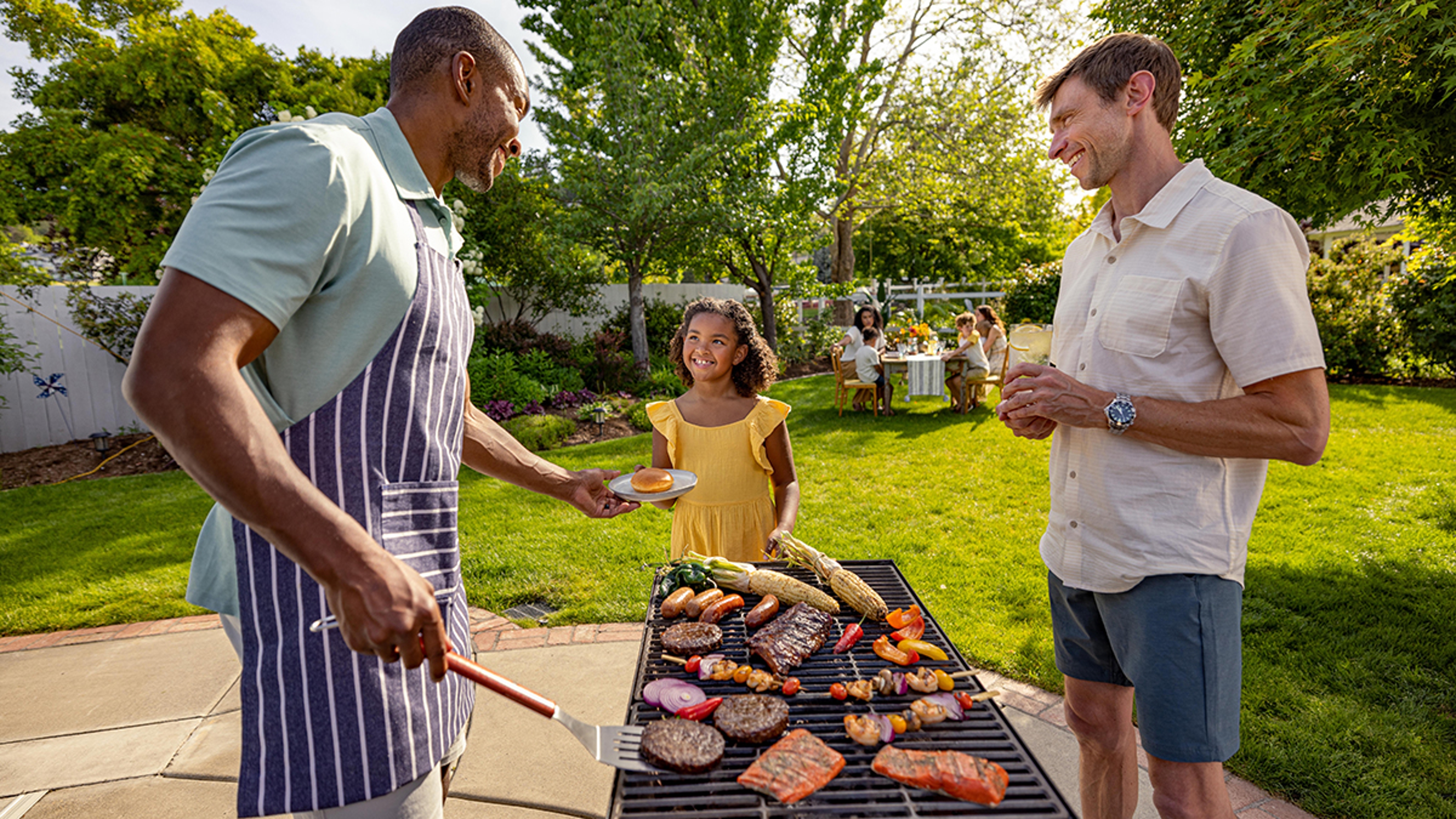Mind, Body & Food: Inside the Healing Power of Cooking Therapy
There's more to preparing a dish than just eating it.
Aug 05, 2022
As anybody who has ever celebrated a big achievement with a favorite meal or eaten through a breakup knows, food and mood are incredibly interrelated. We eat when we are happy. We drown our sorrows in food when we are sad. And we munch away on snacks of all types when we are anxious, scared, or even bored.
But the therapeutic power of food isn't just centered on its consumption. Preparing food and sharing it with others — or simply enjoying the foods we make on our own — can be incredibly therapeutic as well. It's the reason why your grandmother never seemed to mind all those hours she logged in the kitchen, and why you likely feel an incredible sense of happiness, satisfaction, and relief whenever you successfully complete a favorite recipe of your own as well.
Cooking, regardless of what you're making, can have concrete, scientifically proven therapeutic benefits, from boosting mood to reducing stress and even relieving anxiety. Read on to learn how, regardless of your culinary skill level, you can make the time you spend in front of the stove even more calming and restorative with the magic of cooking therapy.
What is cooking therapy?
Like art therapy, drama therapy, and a number of other psychological practices, cooking therapy is a proven way to enhance self-esteem, fight depression, and better an individual's overall quality of life. In a 2016 study, for example, researchers found that people who frequently completed small, creative projects on a regular basis, such as cooking or baking, reported feeling happier and more relaxed than individuals who rarely performed these actions. The reason? Cooking forces people to focus on goals, prevents procrastination, empowers individuals with a renewed sense of control, and increases concentration, making it harder to dwell on negative thoughts.
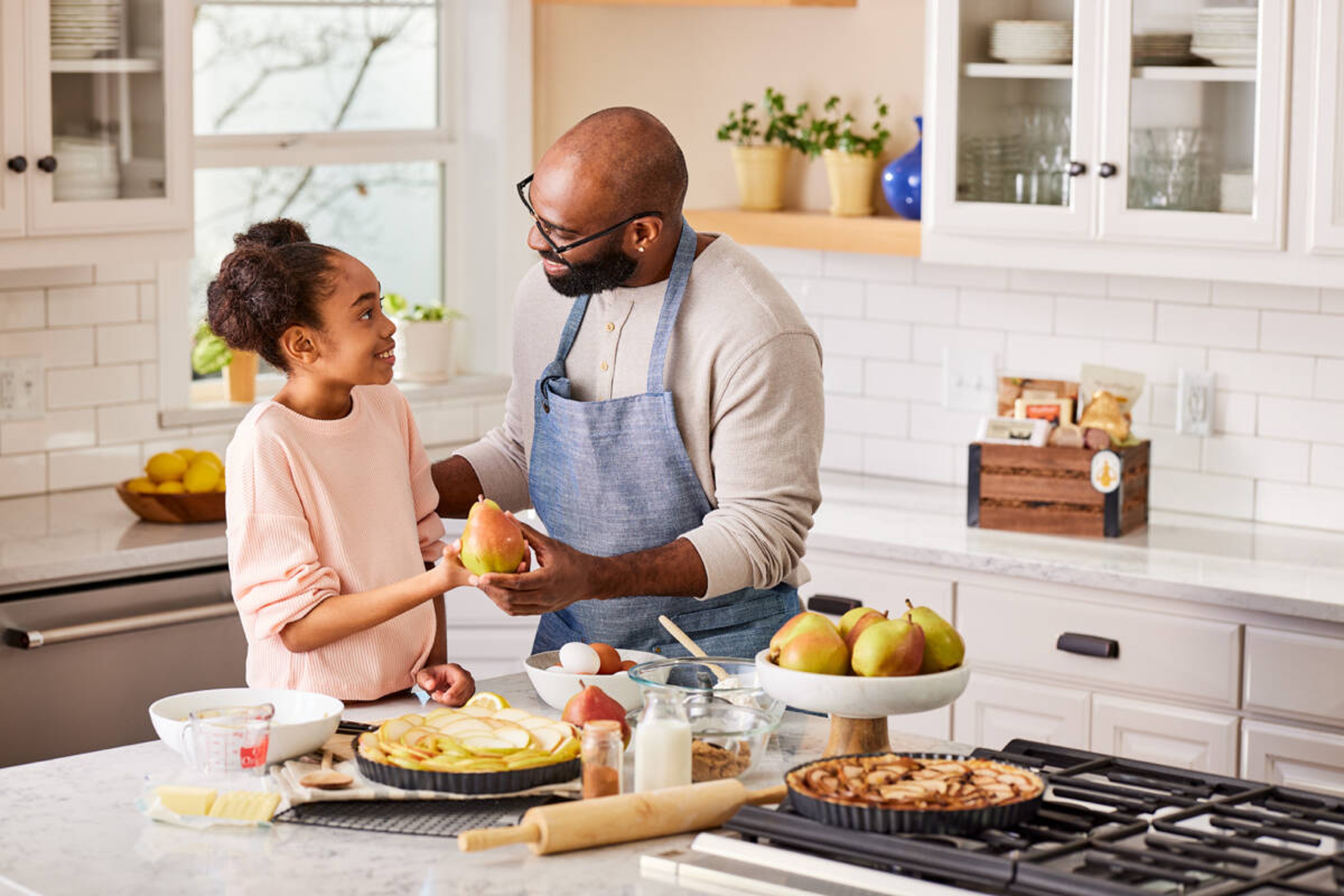
“Cooking is a fun and unique way to slow down, embrace the here and now, and get to know and understand ourselves better," says Nicole Barkhordari, a marriage and family therapist who includes cooking therapy among her specialties. “Studies show it can even increase the release of dopamine in the body, making us feel happier and increasing our capacity to manage our emotions and behaviors."
“The process of creating food in the kitchen can tap into many benefits, such as boosting your self-esteem, creating a safe outlet to relieve emotions, and helping an individual regain a sense of control in their life when things feel incredibly overwhelming and filled with stress," adds Debra Borden, a food therapist and author of Cook Your Marriage Happy. “Even just half an hour a day in the kitchen can help a person exponentially with self-esteem and stress relief."
Cooking vs. baking
It doesn't matter whether your recipe box leans more sweet or savory — cooking a tangy tuna steak or baking a decadent cherry galette can both have mood-boosting benefits.
“It really just depends on what a person prefers," says Dr. Michael M. Kocet, a professor at the Chicago School of Professional Psychology and one of the first academics to teach a course on the benefits of cooking therapy. “Some people gravitate more toward cooking because it allows for more organic spontaneity while others prefer the stricter science and rules involved with baking and find that structure more rewarding."
The important thing, Kocet says, is that you pick the one you find more satisfying and personally rewarding to make your time in the kitchen more therapeutic.
The power of cooking therapy
Cooking doesn't make it easy to procrastinate, and that's another of its most powerful therapeutic benefits: It forces you to put aside unnecessary thoughts, and be present and in the moment.
“When you're cooking, your energy is focused on the present," Barkhordari says. “Your senses are wild with curiosity and exploration. There is no time for negative thoughts, worry, doubt, fear, or shame.
A technique many therapists use with their clients is grounding. This practice helps bring the person undergoing therapy back to the present moment, when their thoughts or external environment feels out of their control. To do this, therapists teach clients to focus on their five senses: sight, hearing, smell, touch, and taste.
"There is no better environment to do this in than the kitchen!" Barkhordari exclaims.
A feast for the senses
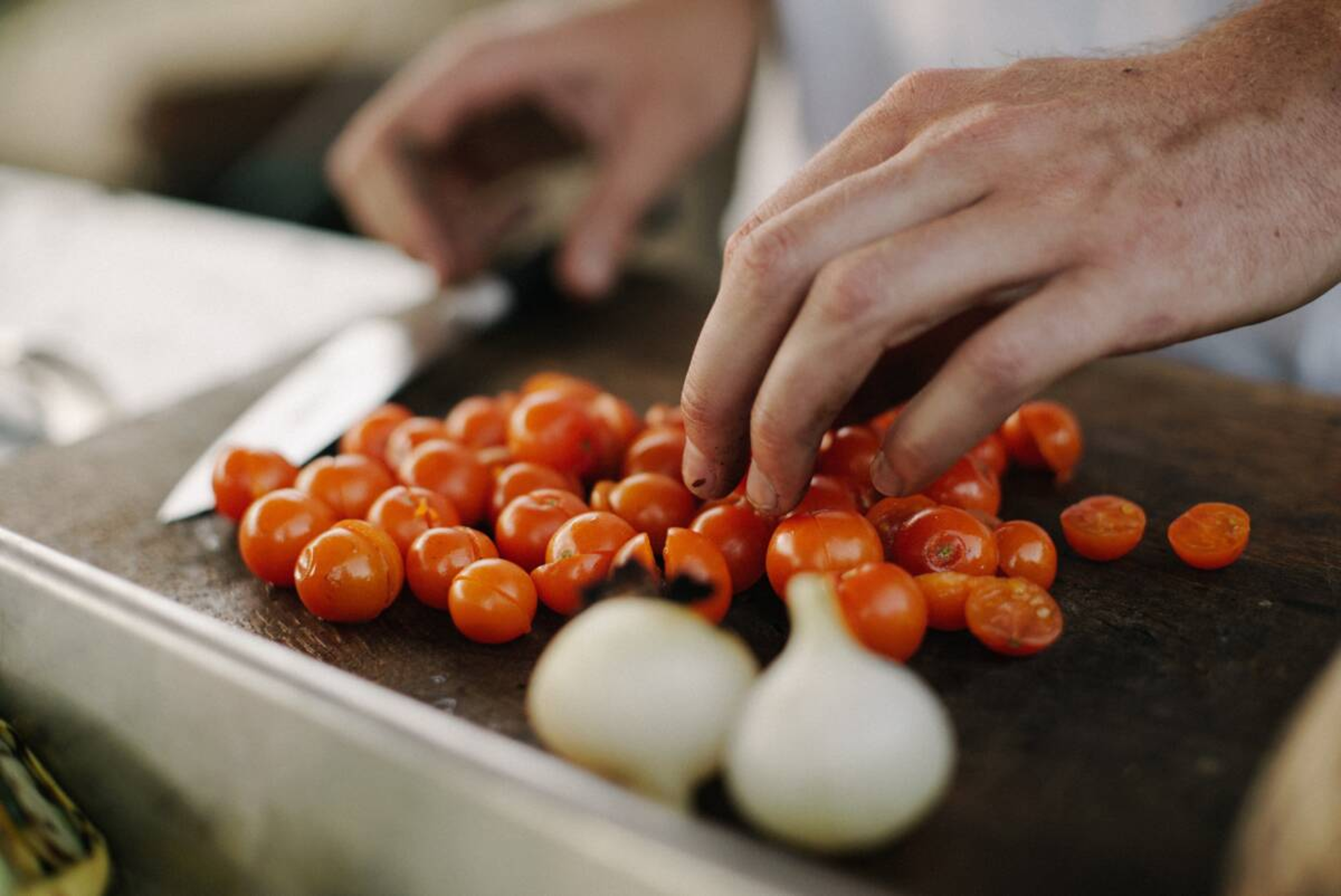
In a high-tech, digital world, the primal act of repetitive chopping, prepping, and mixing foods together by hand is another powerful aspect of what makes cooking so therapeutic, says Rebecca Bruck, a food therapist who goes by The Creative Culinary Therapist.
“Whether you are immersing your hands in soothing water to wash vegetables, running your fingers through grains of rice, or kneading dough on a pizza wheel, touching something that one finds soothing can vastly improve your overall physical and mental health," she says. “Studies have found that this type of therapeutic touch promotes relaxation, reduces stress, lowers blood pressure, and improves breathing.
“If someone is truly focused on the task at hand and connecting with their ingredients and creating a finished product, that will ultimately help a person boost their confidence and self-esteem," Bruck says.
Selecting the right dish
For much of cooking therapy, the recipe you decide to prepare is much more important than the food you end up with. (Just think of that mouth-watering grilled steak or frothy smoothie as an extra reward for your hard work!)
“I sometimes give my patients the assignment to create a unique salad from scratch that represents the different aspects of their personality and the things they feel they need to work on," Kocet says. You could also try your hand at putting together a pasta dish designed to represent the different ways you want to grow in the future or sugar cookies filled with a variety of dried nuts and fruits symbolizing your current mood.
“Every individual's dish will look and taste incredibly different," Kocet says.
Another of his recommendations: For anyone grieving, dealing with loss, or looking to connect to their past, re-create a dish that reminds you of your youth or the individual who has left your life.
“My grandmother always used to make this very simple salad for me that I loved," Kocet says. “So whenever I'm missing her, I'll make that salad. And afterward, I feel comforted, knowing she's close to me."
The value of cooking a new recipe
Alternately, if you don't want to focus on your past, consider trying something new and different when planning a meal, Barkhordari says.
“Part of what transforms the cooking process into a therapeutic tool is being mindful of the meaning we assign to the task at hand. A busy mom who thanklessly cooks dinner every night for her family might have once enjoyed the process of cooking but now considers it a chore."
If that sounds familiar, you need to redirect your focus in the kitchen from just completing a task or goal to experimenting with new foods and techniques. For example, try making your own homemade cannoli, crafting your own homemade ice cream, or curing your own DIY cheese.
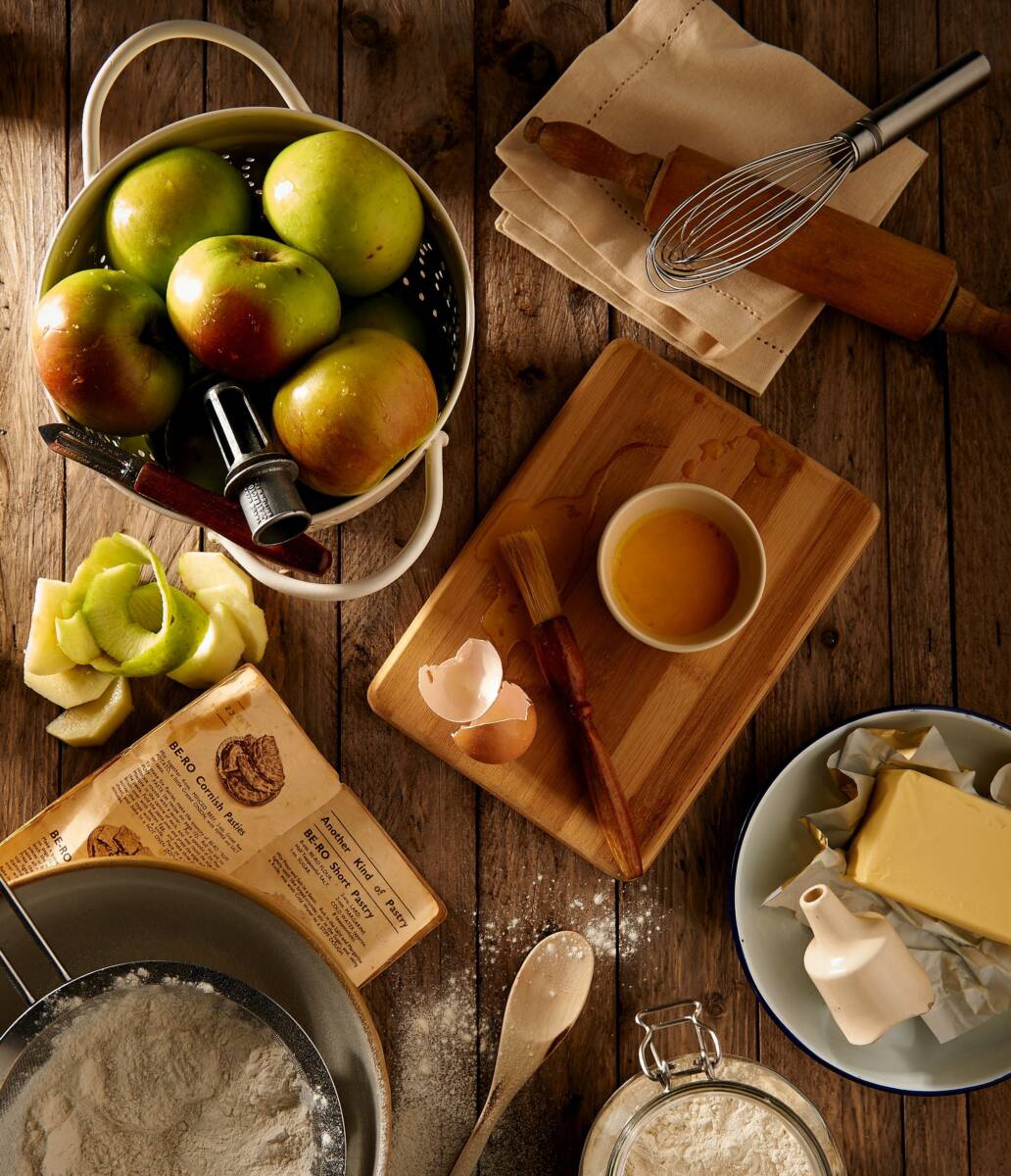
“Therapeutic cooking gives you the opportunity to try out new things — to discover flavor combinations and learn how each ingredient contributes to the dish," Barkhordari says. “It allows you to express your emotions through food and flavor, and process your feelings by creating something new. It's about enjoying the experience, the process, and not worrying about perfection."
Preparation is power
The French call it “mise en place." In short, it means having all your ingredients in one place — already measured, cut, peeled, sliced, or grated — before you start cooking. And, according to Kocet, it's yet another way to make cooking a much more therapeutic process.
Having the ingredients you are cooking with prepped in advance and your spices organized in a systematic way makes the process of cooking more smooth and less stressful, he says — but it also carries over into other aspects of life.
“Learning that kind of organization and structure, and then applying it to life outside the kitchen can help people feel stronger, more self confident, and more empowered to succeed," he says.
Enhance your culinary experience with cooking therapy
One thing almost all culinary therapists agree on: The more distractions you eliminate from your kitchen when cooking, the more therapeutic the overall experience becomes. That means turning off your TV and muting your cell phone so you can focus completely on the experience.
“Try adjusting the lighting in the kitchen to make it more soothing — maybe lighting some candles — or putting on your favorite music as background noise," Bruck suggests. “Your anxiety levels can change significantly just by making these subtle adjustments to your environment."
Another easy idea: Invest in a fun novelty kitchen tool or personalized item that makes you smile.
“Humorous kitchen gadgets like funny-looking egg timers or animal-shaped tea infusers make cooking more fun and will also remind you to take a deep breath and smile while in the kitchen," Bruck says.
Share your results — and meal
Finally, and perhaps most importantly, after you've spent time in the kitchen preparing a mood-boosting meal, share it with those you love.
“When I was young, I was extremely shy and reserved," Barkhordari recalls. “I had a very hard time connecting with kids my own age but always felt in my element when I was in the kitchen. Not only did the creation of delicious meals bring so much pleasure to the taste buds, but it was also a way for me to connect and relate to others."
Today, she adds, one of her favorite things to do is bring a little toaster oven and cooler full of ingredients into a high school, and teach students to make homemade pizzas and oatmeal chocolate chip cookies from scratch.
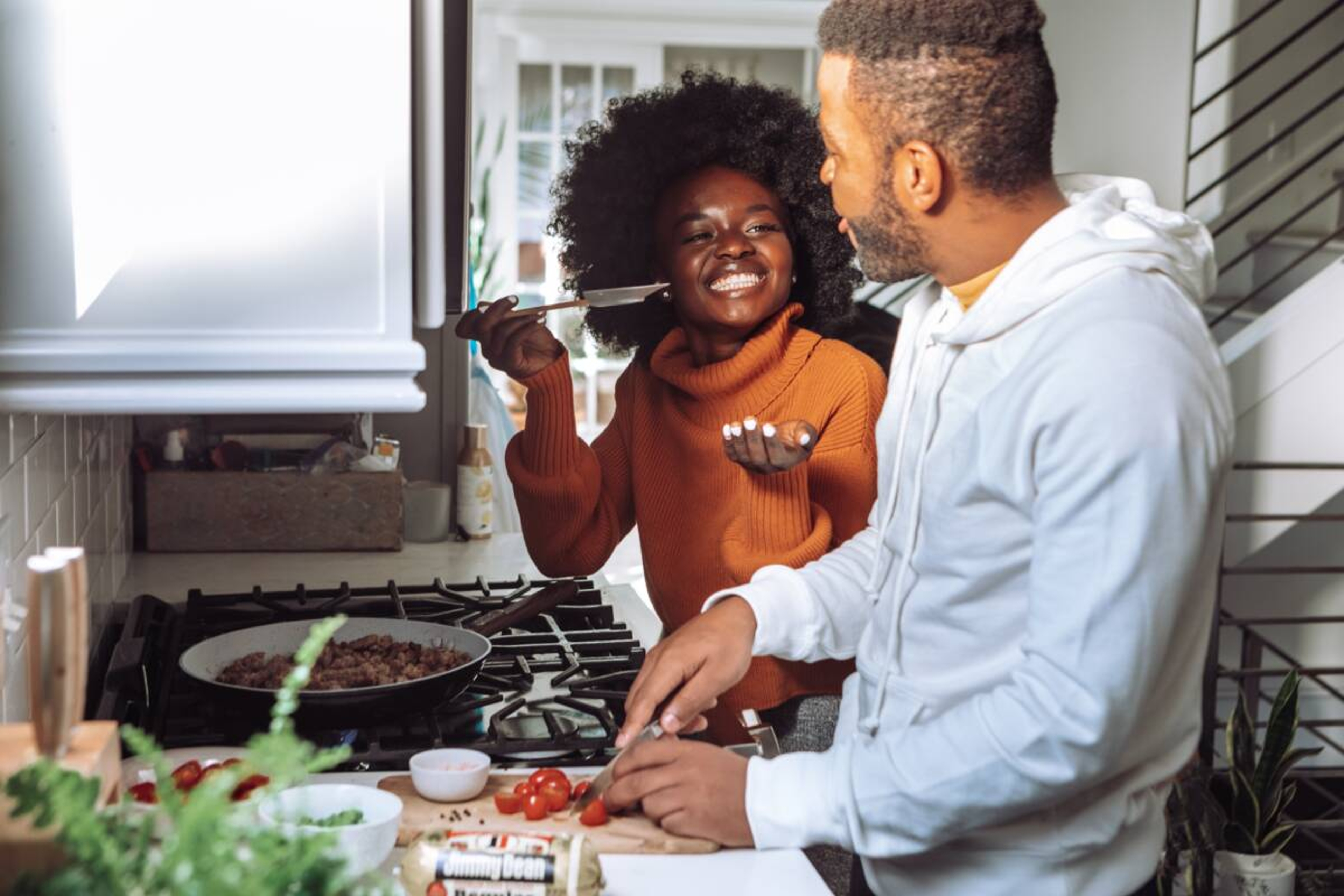
“It is hard to put into words the pride these kids feel in creating something with their own two hands that they can enjoy and share with their friends and family," she says. “As humans, we're wired for connection. Cooking makes that happen: It spurs communication and cooperation when cooking with a partner or family member, and it hones conflict resolution skills. Plus, it gives you time and company to reminisce about family memories and old recipes.
"It's the perfect equation for connection: Shared meals without technology equals true quality time."
And there's definitely something therapeutic about that.
.svg?q=70&width=384&auto=webp)




